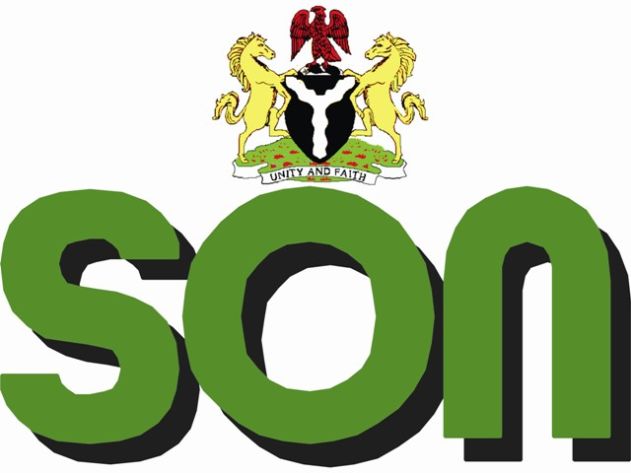Brands all over the world have a big problem on their hands – dealing with the ugly menace of counterfeit products that are continually flooding the marketplace which are undermining original equipment manufacturers’ (OEM) products.
The activities of these criminals, worsening by the day, undeniably affect the revenue of brands. But more worrisome for these brands, is the issue of lost consumer trust. In instances, they have been misled into believing that they were buying the original product, only for the product to break down or develop a fault sooner than expected.
In Nigeria, for instance, counterfeiting remains a concern for brands, especially for those in the pharmaceutical industry, with 13% – 15% of drugs in the country said to be fake, according to the National Agency for Food and Drug Administration and Control (NAFDAC).
As of January 2022, the prevalence rate of fake drugs was reportedly higher than the global average of 10% and contributes to a sizable number of deaths annually. In one report, NAFDAC’s director of investigation and enforcement directorate, Kingsley Ejiofor, stated that the agency had seized 2 trillion-naira ($4.8 billion) worth of counterfeit drugs in the past three years.
Aside from pharmaceutical products, other prominent counterfeit items found in Nigeria are: food items, footwear, clothing, leather goods, automotive parts, optical media (CDs and DVDs), cosmetics, alcohol, and jewellery.
The Covid-19 pandemic has also shifted the landscape somewhat, with a greater number of people resorting to online shopping. Unfortunately, as brands embraced e-commerce, so did criminals. Today, e-commerce platforms offer criminals the anonymity they need to sell products which they present as genuine goods.
Where face-to-face retail offers consumers the opportunity to identify fake products at the point of sale, making those selling the products, liable for the products they sell. With online sales, it becomes easy for illegitimate products to be passed off as original goods to global markets. As a result, brands like HP, renowned for producing print cartridges for customers around the world, must act fast to stop the spread of fake goods universally, both online and offline.
The biggest profit margins for these crooks lie in the commercial market, but they have also been targeting the consumer market. Understanding that consumers like a discount, something that is even more true with the rising cost of living, drives customers to look for cheaper deals. In the end, most of these consumers are tricked into buying counterfeits they thought were genuine.
E-commerce requires new tactics
At HP, our strategy for investigating fake products usually entails looking at the entire commercial and retail supply chain, beginning from physical locations to online platforms. This allows us to be able to trace from stores to a distributor, and upwards to the producer. This strategy tactic has proven beneficial as we saw that between November 2020 and October 2021, HP seized 3.5 million fake print products, including completed goods and component parts, circulating in several regions including in EMEA, Asia Pacific and the Americas.
The growth of e-commerce means that we will need a wider set of tools, tactics and allies. A great percentage of fake-print products are traded in online marketplaces, and HP has been liaising with these platforms and other third-party groups to help spot counterfeit goods, confiscate them, and find their source.
For instance, HP usually carries out virtual Customer Delivery Inspections (CDIs) and Channel Partner Protection Audits (CPPAs). In FY21 alone, we conducted 1,191 CPPAs, representing an 11% increase on FY20. These virtual checks and reviews have helped the HP Anti-Counterfeit and Fraud (ACF) team in finding and delisting over 224,000 illegitimate HP online offers globally; and we are doubling down, increasing the number of online delisting’s by 19% every year.
Additionally, HP continues to use dynamic security, which ensures chips within our products are kept updated with information that helps customers verify our product’s authenticity.
Why it is important
The anti-counterfeit war requires collaboration with several parties and joint efforts prove to be very effective. Recently, there has been stronger calls for collaboration amongst relevant stakeholders across all supply chains, to join the fight against counterfeit products in Nigeria. Indeed, it is in everyone’s best interest to stop the use of counterfeit print products. For instance, HP printers work at their optimal levels when genuine print products are used rather than fake ones.
There are however bigger concerns – where fraudulent businesses are not concerned about the working conditions and welfare of their workers. Patronising genuine goods is an important way of supporting fair working conditions for workers around the world.
Buying original products also shows one’s commitment to protecting the environment. HP has created over 3.9 billion original HP ink and toner cartridges mainly from recycled plastic. Currently, more than 80% of Original HP ink cartridges and 100% of Original HP toner cartridges are made with recycled content.
With the HP Planet Partners, HP’s return and recycling programme, the company has recycled more than 875 million cartridges since the programme began nearly 30 years ago, with expansion to 68 countries around the globe. Patronising genuine products encourages these kinds of efforts and increases the number of sustainable cartridges in circulation.
For us at HP, we are encouraged and remain committed to halt the manufacturing of counterfeit products at source. We are also on a drive to educate consumers, the main victim in all this, about the need to report any fake products they come across.
It is a collective responsibility that involves all, from manufacturers all the way to the consumers themselves – to discourage the cycle of counterfeit goods and manipulative criminal activities. We encourage all HP customers to always look out for the holographic security label on their product box, scan the QR code to check if it’s a genuine or not– and report if it’s a counterfeit.
By Emmanuel Asika, Country Head, HP Nigeria












